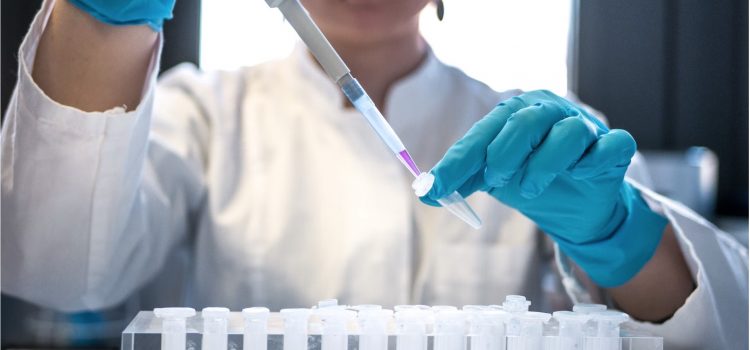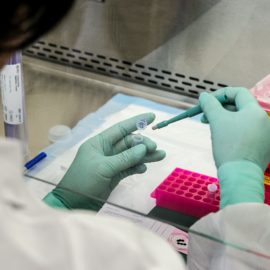
This is a free excerpt from one of Shortform’s Articles. We give you all the important information you need to know about current events and more.
Don't miss out on the whole story. Sign up for a free trial here .
What do proponents say about the legalization of psychedelics? What about those against legalization?
The last few years have seen a surge of interest in psychedelics as treatments for intractable mental health conditions. However, some still wonder if psychedelics are as miraculous as their proponents say or if they may pose unacceptable risks.
Read on for an overview of the current pros and cons of the legalization of psychedelics.
The Case for Legalization
The last few years have seen a surge of interest in the legalization of psychedelics, particularly as their value in treating intractable mental health conditions becomes clearer. Psychedelics have even come to Netflix and Wall Street. As our enthusiasm for psychedelics blossoms, they’re being proposed as cures for anything from anxiety and depression to food allergies and periodontal disease.
Because of these potential benefits, there are increasing pushes for legalization around the world. However, legislators are currently cautious. Is this caution just outdated thinking from the U.S. War on Drugs, or are legislators right to take things slow?
People arguing for legalizing psychedelics cite three reasons: 1) the increasing evidence that psychedelics can relieve difficult mental health conditions; 2) the low levels of documented risks; and 3) the more rigorous monitoring and quality assurance that legalization would make possible.
The Benefits for Mental Health Are Potentially Revolutionary
The main impetus for the legalization of psychedelics is their potential for significant therapeutic benefits. Harnessing psychedelics may revolutionize psychiatry, a field that’s been floundering for decades. Early evidence suggests that psychedelics (in conjunction with therapy) can work to heal mental illnesses that the Western medical system struggles to deal with.
Some researchers maintain that psychedelics might cure (and not just reduce the symptoms of) conditions that seem disparate but have a common link, possibly in unprocessed trauma, stuck mental patterns, or deep-seated disconnection. Because of this broad-spectrum action, psychologist Alex Belser calls psychedelics “medicine in search of a condition.”
Clinical trials have already shown that:
- MDMA-assisted psychotherapy effectively treats Post-Traumatic Stress Disorder (PTSD).
- Psilocybin-assisted therapy can improve major depression, perhaps due to increased integration of brain networks. One study that involved only two sessions with psilocybin found that the effects were still significant six months later.
- Both psilocybin and LSD also show long-term effectiveness against cluster headaches.
- Psilocybin and LSD alleviate end-of-life anxiety and depression in patients with terminal illnesses.
- DMT (ayahuasca) alleviates treatment-resistant depression.
Current trials include the following:
- Psilocybin for migraines, obsessive-compulsive disorder, eating disorders, weight loss, chronic pain, Alzheimer’s Disease, and addiction to tobacco, alcohol, and other substances.
- Ketamine for Gulf War Illness and depression, especially in the case of suicide risk.
- MDMA for PTSD, social anxiety, and eating disorders.
- LSD for anxiety.
Importantly, these trials are showing that very few doses are needed to achieve the therapeutic effect: Long-lasting results are often seen after only one or two treatment sessions. Ethnobotanist Terrence McKenna once commented: “The more successful it is, the less often you have to do it,” going on to note that even people who tell him that DMT is their “favorite drug” frequently report not having had any since the 1960s.
The Risks Appear to Be Low
Most psychedelics appear to pose minimal physical risks—especially compared with other substances that are currently legal, such as tobacco and alcohol. For most of these substances (with the exception of ketamine), there’s little to no evidence of organ toxicity, and lethal overdoses are vanishingly rare. Addiction (except in the cases of MDMA and ketamine) is also rare, though tolerance does develop with repeated use. Despite fears to the contrary, psychedelics are also not linked to psychosis in the general population.
Legalization Would Mean More Monitoring and Quality Assurance
Proponents of the legalization of psychedelics also argue that we need to consider the risks of not legalizing these substances. As long as psychedelics remain illegal, there’s a high risk that they’ll be contaminated—or even substituted—with more dangerous substances. In Australia in 2021, for example, the much stronger and more dangerous drug NBOH was sold as LSD, resulting in a series of hospitalizations. MDMA is also frequently “cut” with fentanyl, for which an overdose can be fatal. Legalizing psychedelics would reduce the black market for these substances, introducing potentially life-saving regulations and purity controls.
The Case Against Legalization
People arguing against the legalization of psychedelics say that we still don’t fully understand the risks. They also point to three types of potentially harmful consequences: 1) predatory commercialization; 2) environmental and cultural damage to indigenous communities; and 3) the possibility that patients will be emotionally or physically abused by their therapists.
We Don’t Fully Understand the Risks
The short-term risks of psychedelics mostly involve temporary but unpleasant experiences (“bad trips,” which some argue have therapeutic value). More concerningly, the intense effects of psychedelics can include intense mood swings and erratic behavior, so there’s the possibility that someone who takes a psychedelic outside of a controlled setting might injure themselves and others, even on rare occasions going as far as suicide or murder. Psychedelics can also interact with prescription medications, particularly antidepressants, sometimes with the risk of lethal toxicities.
The long-term physical and psychological risks of most psychedelics are low for most people. However, for a small proportion of vulnerable individuals, they can trigger more enduring psychotic episodes. LSD, in particular, has been linked to hallucinogen persisting perception disorder (HPPD), a rare but debilitating disorder in which people continue to experience hallucinations and other perceptual and emotional disturbances for years afterward.
Even though these risks only affect small proportions of psychedelic users, critics warn that we don’t understand enough about what causes most of these negative consequences to be able to reduce them. More widespread use will also mean higher absolute numbers of people falling victim to these negative consequences.
Commercialization
If the benefits of psychedelics are borne out in the current clinical trials, big money will follow. Investors are already scrambling to get in early on startups and clinical trials and Big Pharma is busy filing patents. The flood of attention and money to this previously neglected area is a positive step, but there’s also reason to be wary of the involvement of Big Pharma and Wall Street. If psychedelics are legalized, this new money and attention may introduce more problems than it solves.
First, the possibility that psychedelic-based treatments may be more effective than currently available medications poses a paradox to pharmaceutical companies. On the one hand, they want to jump on board and make money from any new treatments. But on the other, if psychedelics can effectively cure mental health conditions after only one or two doses, these companies risk losing massive volumes of customers who pay to take a pill every day.
With this conundrum in mind, companies are rushing to stake out territory by applying for patents related to psychedelic-assisted therapy and products. Critics point out that if these patent applications aren’t handled skillfully, they risk severely limiting scientific research (and, by extension, the number of people who eventually benefit from the research). Some of the applications even include components of basic therapeutic protocols such as “the subject listens to music,” “the room comprises a bed or a couch,” and “the therapist responds to the subject if the subject initiates conversation.” Patent offices are usually well-equipped to distinguish between general practice/knowledge and genuinely original ideas, but in such a new field it might take a few years for them to figure it out (and the patents granted in the meantime will continue to be valid). This is a real concern and has already happened: A patent granted to Compass Pathways in 2020 arguably impeded the progress of research on creating synthetic versions of psilocybin.
Environmental and Cultural Damage
Opponents of legalizing psychedelics also argue that we need to be wary of potential damage to the environment. As long as we lack good synthetic versions of these compounds, demand for naturally grown plants will skyrocket. Many of these plants are already facing increasing pressure in their original habitats from the recent boom in psychedelic tourism. Peyote, in particular, is very slow-growing—one tiny cactus can take up to 15 years to mature—and the species is increasingly threatened. The ayahuasca vine and its DMT-containing complement, chacruna, are also becoming hard to find in some areas.
There’s also the risk of damaging local cultures through neocolonialism and cultural appropriation, as well as by causing intense internal conflicts. What happens, for example, when the $4.4 trillion Western wellness industry juggernaut crosses paths with a small indigenous community? We have an early example of this, and the outcome wasn’t good: The first Westerner to consume psilocybin mushrooms and then write about it for a wide audience was R. Gordon Wasson (then the vice president of J.P. Morgan). Wasson went to Mexico in 1955 and sought out famed Mazatec healer Maria Sabina Magdalena García. He gained access to her sacred ceremony by lying that his son was in danger, later taking spores of the mushroom back to the U.S. for analysis. His writings revealed the healer’s location, and soon, Western tourists seeking mushrooms flooded her village. Her community blamed her for the resulting chaos and retaliated brutally—they burned her house down, killed her son, put her in jail, and eventually threw her out of her village. She later died in poverty.
Potential for Emotional and Physical Abuse
When evaluating new drugs, regulators typically examine whether there’s potential for abuse. However, the “abuser” in these scenarios is almost always the person who takes the drug, with “abuse” meaning addiction or overdose. While most psychedelics are low-risk in terms of user abuse, there’s a real risk that users of psychedelics may be abused by others.
Many psychedelic substances cause extreme physical incapacitation and profound psychological vulnerability. If they become widely available through the legalization of psychedelics, they could be used as date rape drugs or to commit theft. Worse, they may be used by people in positions of therapeutic power to assault people in their care. Malevolent ayahuasca “shamans” in the Amazon, for example, have sexually assaulted people who are under the influence of the brew. Many people seek out psychedelics to heal from sexual assault trauma, and being assaulted while revisiting the original trauma in an attempt to heal it is damaging on the deepest level. The reports of abuse aren’t limited to unregulated contexts. In 2015, PTSD sufferer Meaghan Buisson was abused by her therapists during and after an MDMA clinical trial sponsored by the well-respected Multidisciplinary Association for Psychedelic Studies. This happened even though there was a camera in the room.
Even if therapists don’t actively abuse their patients, the psychological states that are accessed in psychedelic therapy sessions are extremely delicate. These substances often unlock repressed childhood trauma, so therapists need specific trauma-informed training to respond in ways that will heal, rather than aggravate, the trauma. As the numbers of people participating in psychedelic-assisted therapy increase, there will be an increasing strain on therapist accreditation systems that may not be well-equipped to deal with this new task. Higher absolute numbers of therapists will make thorough monitoring difficult, as well as increasing the absolute numbers of therapists with misguided or outright predatory aims.

Want to fast-track your learning? With Shortform, you’ll gain insights you won't find anywhere else .
Here's what you’ll get when you sign up for Shortform :
- Complicated ideas explained in simple and concise ways
- Smart analysis that connects what you’re reading to other key concepts
- Writing with zero fluff because we know how important your time is






